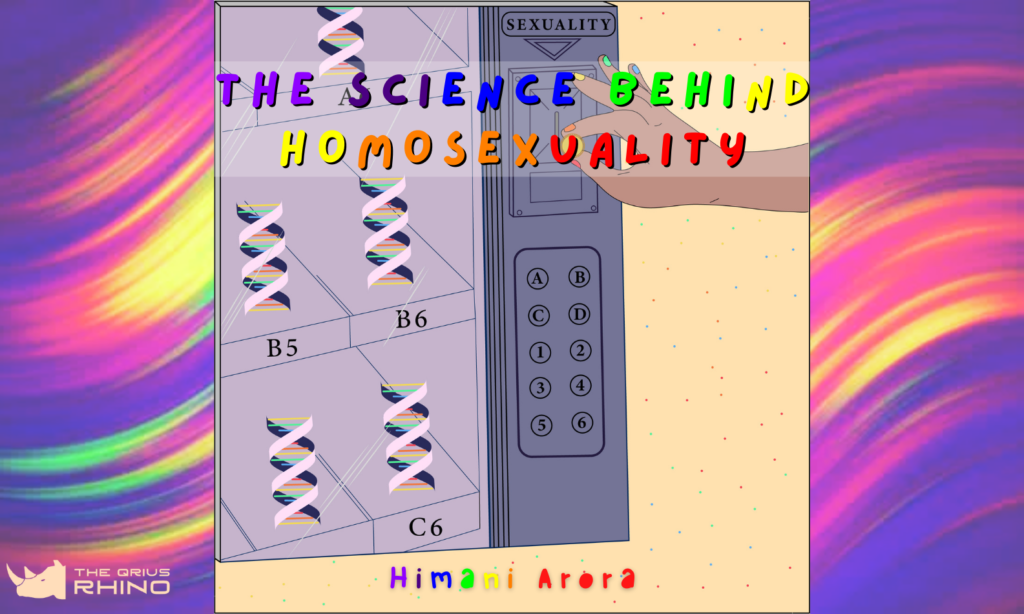
Twenty years ago, the Netherlands became the first country in the world to legalize same-sex marriages. Currently, there are 29 countries in the world with the same law. Even though our progress has been great, we still have a long road ahead. There are many people who still believe that “homosexuality is a choice and, one can be cured with religious practices and manmade rewiring of a predisposition”. In the last two decades, dozens of scientific papers have been published on this issue and the evidence stands strongly against the above statement.
HOMOSEXUALITY IS NOT A CHOICE
A 1993 study found male sexual preference was influenced by a particular gene on the X chromosome, which is now popularly called as the “gay gene”. However, recent studies suggest that there is no one single gene that influences one’s sexuality. Instead, there are hundreds of different genes that play a role in influencing the sexuality of an individual.
Moving forward, it’s a good idea to jiggle our memories from the older biology classes and refresh how genes work. Cells encompass DNA that has numerous genes that make proteins. The protein in our body covers a vast array of functions- from enzymes that aid in speeding up the chemical reactions to structural proteins (like collagen) that build material in our bodies. Relevant genes play a role in how hormones interact with the way our brain functions. But genes are not the only lead characters in this story. Enter – EPIGENETICS.
The role of epigenetics in homosexuality
Epigenetics includes the study of extrachromosomal events that regulate the function of genes. These are normally markers that dictate the status of a gene- on, off, upregulated, or downregulated. Consider the example of an “alcoholism gene”. Not only is genetics a reason for alcoholism running in families, but it is also because children learn how to cope with stress by watching their parents (or relatives) in stressful situations. This also implies that if you belong to a culture where alcohol consumption is forbidden, it will be difficult for you to become an alcoholic, regardless of how your body metabolizes alcohol.
To clarify, gay genes are plausibly present in everybody and epigenetics determines which of the genes would be functional. For instance, a 2015 study found that certain epigenetic markers (methylation patterns) in the genome appeared to be linked to sexual orientation with about 70% accuracy.
The evolutionary postulation
A question comes to mind. If homosexuality is in fact scientific, does it not contradict the Darwinian theory? If the purpose of the species is to reproduce, how does homosexuality make sense evolutionarily?
As per ‘Kin Selection hypothesis’, gay members of a family that do not reproduce still increase the prevalence of their family’s genes by providing resources for the offspring they are related to. They are the “helpers in the nest” that compensate for their lack of children by looking after their nephews or nieces.
“Homosexuality gives advantages to the group. A society that condemns homosexuality condemns itself” – E.O.Wilson, an American biologist, nicknamed – The Darwin of the 21st century.
The news and current social media make the struggles of sexuality quite clear. There is still a lot left to achieve in every aspect of homosexuality – politically, emotionally, scientifically. The end of this journey would mark a salient milestone for the field of science, and most importantly, for society as a whole.
This is the second blog of the series “The Science Behind” by Himani Arora.
About the author:

Himani is a final year Master’s student at Banaras Hindu University at the Department of Zoology, India. She aspires to be a Science Communicator. She has gained good experience in this domain. Himani writes science articles, creates visuals (infographics, posters), and also draws science comics.
You can follow her work on S’more Science.
You can also follow her on Linkedin.